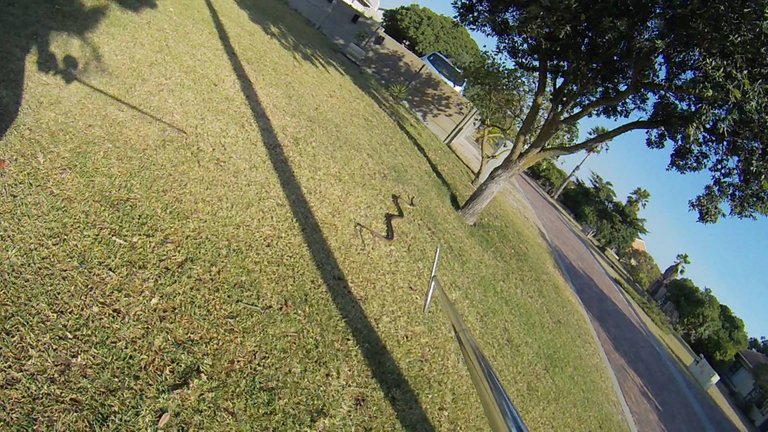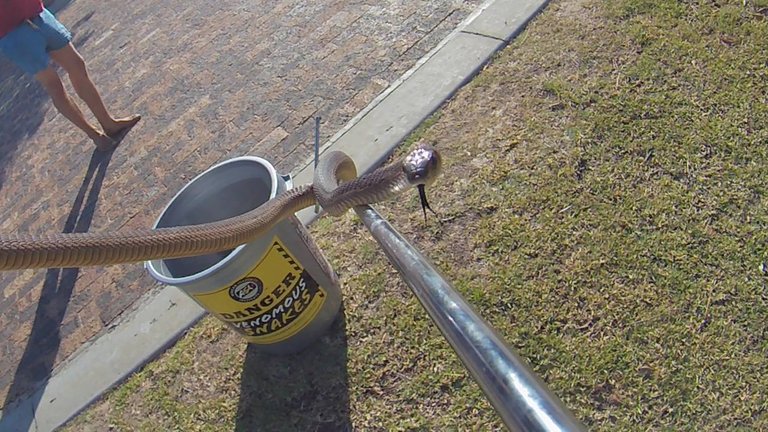I was called out to remove a Boomslang from someone's garden in Melkbosstrand. These snakes are very fast, and by the time I got there it was nowhere to be found.
We searched for quite a while before I finally saw it on the neighbour's lawn - it was promptly captured and relocated to the bush.
--


Boomslang are known for their strikingly large eyes - the largest of any African snake. Females are light to olive brown with dirty white to brown bellies, whereas males may have a variety of colors.
Shy and diurnal (active during the day), they spend most of their lives in trees and shrubs where they hunt eggs, birds, frogs, chameleons, and other tree-dwelling lizards.
Boomslang venom is haemotoxic, which means that it affects the clotting mechanism in blood and leads to severe internal and external bleeding, or even haemorrhage if untreated. Although potent, the venom is slow-acting and may take more than 24 hours to produce serious symptoms - an effective anti-venom is available in some locations.
There are two common myths about the Boomslang: firstly, that they drop from trees onto people who walk by (they don’t), and secondly that because they’re rear-fanged they can only bite you on your little finger (they are rear-fanged, but can open their jaws 170 degrees and bite you almost anywhere on your body).
Hi! I am a robot. I just upvoted you! I found similar content that readers might be interested in:
http://www.dailymotion.com/video/x6debub